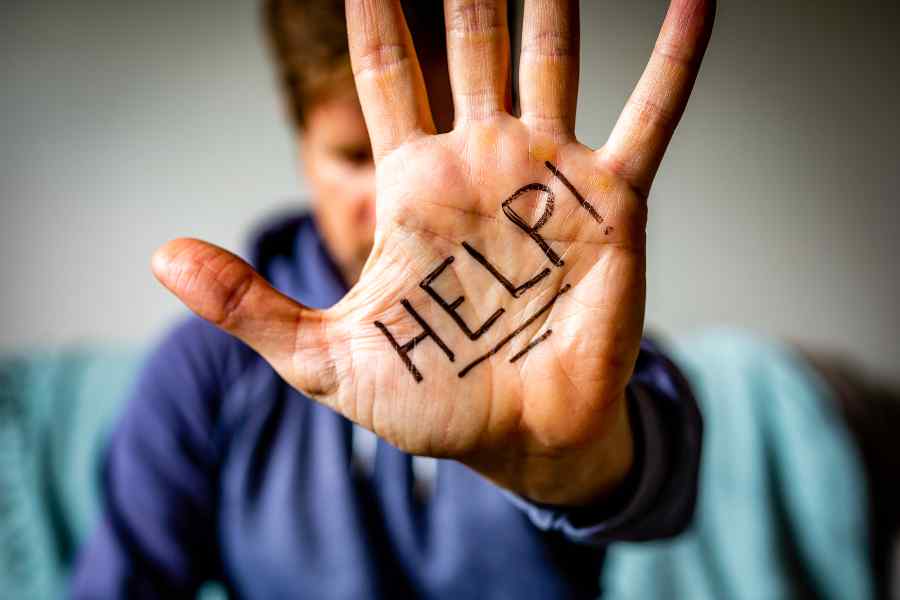
Let’s Talk About Suicide – and Prevention
The Calli InstituteSome topics are difficult to discuss. Often the magnitude of those tougher issues resonates deeper, so they should be examined. And because September is National Suicide Prevention Month, The Calli Institute thought it would be an ideal time to call attention to this struggle as well as the opportunities for support. Let’s talk about suicide – and prevention. We want to open the door and bring this discussion into the light.
Recognition and Awareness
Thoughts of suicide are indifferent to a person’s age, gender, education, environment, or circumstance. While such thoughts are by no means typical, they probably happen more frequently than you may think.
According to the American Foundation for Suicide Prevention, suicide is the second leading cause of death among ages 10 – 34 and overall is the 10th leading cause of death in the United States. In addition:
- Suicide rates are highest among middle-aged white men.
- While more women than men attempt suicide, men are almost four times more likely to die by suicide.
- There are an average of 130 suicides every day.
- Almost half of those who die by suicide had a diagnosed mental health condition and 9 in 10 experienced symptoms.
- LGBTQ+ youth are four times more likely that straight youth to attempt suicide.
Oftentimes, suicidal thoughts stem from a deeper and likely overlooked or unresolved mental health matter. And it’s not always obvious that someone is struggling. Pay attention if you notice a friend or loved one:
- Displaying drastic changes in mood or behavior
- Becoming uncharacteristically withdrawn and disinterested
- Exhibiting increased drug use or alcohol consumption
- Giving away belongings
- Talking about taking their life
Many of those who experience thoughts of suicide are going through personal pain and are looking for a way out. That escape isn’t necessarily death, but the person who is suffering may be unable to comprehend another solution. The feeling of hopelessness is a powerful one and a strong predictor of suicide. That’s why it’s so important for friends to get involved and for individuals to know about and have access to resources for seeking help.
Have a Conversation
Again, the touchy subjects are understandably difficult to discuss – but also necessary. Have a direct conversation with the friend or loved one whom you suspect may be suicidal. This could be the lifeline they need but for which they were afraid to ask.
Try to flow your questions into conversation as naturally as possible and be sure to use the word “suicide” to ensure there is no misunderstanding. Taking this initiative will also let your friend or loved one know you care and are willing to talk – and listen.
Without judgment, ask the individual if he or she is considering ending their life. Allow your question to be answered with a straightforward yes or no – and try not to ask in such a manner that the person might think you’re expecting a “no” response.
Then, be willing to talk candidly. And more importantly, be willing to listen. Validate this person’s experience and emotions. Be impartial and stay calm but make no promises of confidentiality.
Contemplating suicide is a serious matter and should be treated as such. Keep them talking by asking about their feelings and actively listen no matter how gloomy their response. Sometimes just letting someone express their thoughts aloud can help alleviate feelings of negativity and hopelessness.
Reassure your friend or loved one that they aren’t alone, and that support is available. Let them know you want to help and ask what you can do right now.
The Strong, Silent Type
We mentioned earlier that it’s not always obvious when someone is struggling. And, to use a phrase with which many are familiar: Just because someone carries something well does not mean it isn’t heavy.
We often think of our strong friends as the ones who have everything together. After all, they’re the ones everyone turns to when things get tough, right? But who is checking up on those who continually check up on others?
Even the strongest among us has a breaking point. And when someone is usually seen as the determined and steady force, it may be difficult for them to be the one in need – and to acknowledge that and ask for help.
Think about that person who is always there for you, hell or high water. Now it might be your turn to be there for them. Check in on your strong friends, just to make sure. If nothing else, they’ll be touched to know you care.
Support – Always
Discussing suicide isn’t easy. But it’s a necessary step toward addressing the issue. So, let’s talk about suicide – and prevention, and let’s open the door to hope. If you or someone you know is struggling, please know that help is available. Always. The Calli Institute offers accessible, supportive services for all mental health issues. Need someone to listen? Looking for advice to help a friend? We’re here for you – and your friend. And we’re just a phone call away.
